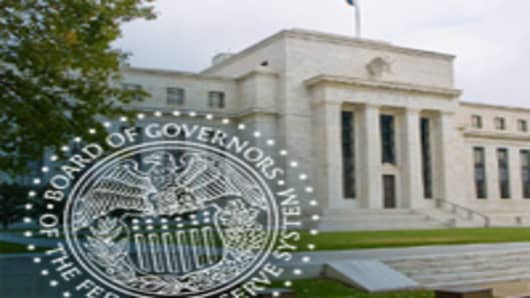Federal Reserve officials feared the economy would be stuck in a painful rut for some time despite their decision to slash interest rates to a record low and pledge to use other unconventional tools to fight the worst financial crisis since the 1930s.
Documents released Tuesday provide insights into the Fed's historic decision to ratchet down its rate from 1 percent to near zero at its Dec. 15-16 meeting.
In the first action of its kind in the Fed's 95-year history, Fed Chairman Ben Bernanke and his colleagues created a target range for its rate, putting it at zero to 0.25 percent.
Fed policy-makers wanted to send a clear message that they intended to keep interest rates very low for a long time to help the economy recover from a recession.
"Participants judged that communicating the committee's expectation that short-term interest rates were likely to stay exceptionally low for some time could be useful," the Fed minutes said.
Stocks trimmed gains Tuesdayafter the release of the minutes.
"It is certainly as dovish as the communique said that the meeting was. The Fed was very concerned in December about a severe slowdown, more than they were expecting in October," said Rudy Narvas, senior analyst at 4Cast in New York.
"There are indications too that the Fed was willing to do as much as possible to provide as much accommodation to the economy as they could. One of the key things too is this feeling among Fed members that they have to keep rates as low as possible for a significant period of time -- the risk is all of 2009. The Fed is not really willing to remove such accommodation and I don't think they are done yet with the extent of quantitative easing either."
In addition to stock market weakness, the dollar fell on sentiment that the central bank would keep rates low and put pressure on the US currency.
"For the time being, near zero interest rate will be with us for awhile. They will keep their balance sheet large for a considerable period of time," said Robert Brusca, chief economist at Fact and Opinion Economics.
-- Reuters and The Associated Press contributed to this report.


